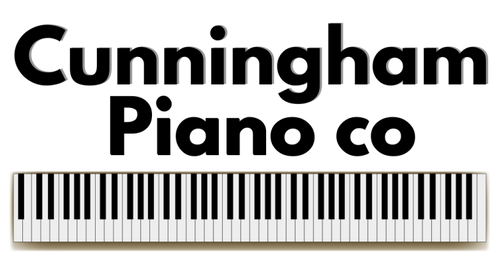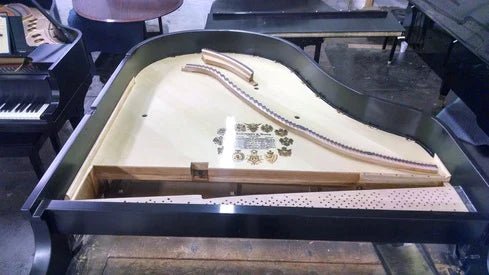Explore how wood quality shapes your piano's sound in 'The Beautiful Soundboard'. Learn about soundboard's role, wood types like Sitka spruce, and why Cunningham Piano Company is renowned for quality pianos. A guide to choosing a piano that resonates with richness and longevity.
The resonant sound of a well-crafted piano can transport listeners to another world. One might wonder: What contributes to the richness and character of this sound? While several factors play a role, the quality of the wood used in the piano's soundboard is pivotal. In this article, we will delve deep into understanding how wood quality influences the tonal characteristics of a piano.
The Heart of the Piano: The Soundboard
Imagine the soundboard as the heart of the piano. It's responsible for amplifying and projecting the vibrations created by the strings. Think of it as the “speaker system” for the piano. A quality soundboard can mean the difference between a piano that sings and one that merely speaks.


Why Does Wood Quality Matter?
- Sound Resonance and Projection: The main job of the soundboard is to project the sound. Denser woods have tightly-packed fibers that can transmit vibrations more efficiently. This means a richer, louder sound with better sustain.
- Tonal Warmth and Color: Different woods have their own unique tonal qualities. High-quality woods can provide a warm, rich tone that's sought after by many pianists.
- Durability: A piano is an investment, and the soundboard is integral to its longevity. Quality wood is less prone to warping or cracking over time, ensuring your piano remains in top form.
Types of Woods Used
Several types of woods have found favor in piano making over the years, but the most coveted is the Sitka spruce. Renowned for its perfect blend of strength and flexibility, this wood offers a brilliant sound resonance. Its tight grain structure ensures efficient vibration transmission, making it the gold standard for soundboards.

Cunningham Piano Company: A Testament to Quality
When it comes to expertise and quality in the world of pianos, few names shine as brightly as the Cunningham Piano Company. Established in 1891, it stands tall as one of America's oldest piano stores, a testament to its unwavering commitment to quality and service.
With showrooms in King of Prussia, PA, Cherry Hill, NJ, and Delmar, DE, Cunningham Piano Company showcases an array of pianos, from grand concert beauties to more compact uprights. A visit to any of their showrooms offers more than just a chance to purchase; it's an experience. Their knowledgeable staff can guide you through the nuances of each piano, highlighting the influence of the wood quality on the instrument's sound.
Moreover, their online platform cunninghampiano.com provides a plethora of resources for both budding pianists and seasoned maestros. From informative blogs to videos, one can immerse themselves in the world of pianos.
Conclusion
The soundboard, with its importance in sound production, deserves the best quality wood. It’s akin to the heart in our bodies, pumping life into the melodies played. When investing in a piano, it’s crucial to understand the role wood quality plays in determining its sound character.
Purchasing from esteemed establishments like the Cunningham Piano Company ensures not only a top-notch instrument but also guidance from experts who have been in the industry for over a century. Remember, a piano is not just an instrument; it's an heirloom that can be passed down through generations, carrying with it stories, melodies, and memories. Choose wisely, and let the music play on!


